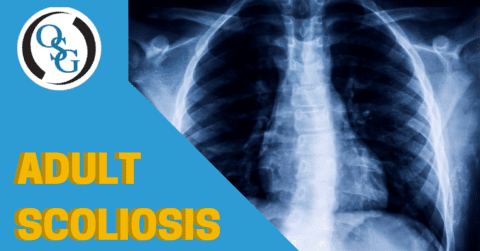
Can Adults Get Scoliosis?
When we hear the word scoliosis, we often think of it as a childhood spinal disorder, but that’s not always the case. Though we regularly check for scoliosis in the preteen years, adults can still suffer from the disease. When a side-to-side spinal curve is present on someone over 18 years or older — adults scoliosis is to blame, and it can be classified into two types: Idiopathic or Degenerative.
So what does this mean for adults?
The most common type identified in both children and adults is known as Idiopathic Scoliosis. There is no known cause, and if found in adulthood, there is a chance that it occurred but went undiagnosed during your adolescent development.
Degenerative Scoliosis only develops during adulthood and begins from a known cause. What is usually to cause? Degeneration of the spinal structure during aging of the joints and spine; this can eventually lead to tilting or shifting between your vertebrae. The further it progresses, the more likely you are to be left with a curvature of the spine.
Symptoms to Know
Though the causes are different — the symptoms can overlap. Generally, the first sign is a difference in stance an appearance due to the curve of the spine. Other symptoms to look out for include:
-
- Back pain from arthritis or disc degenerative
-
- Back pain when standing or often sitting due to spinal stenosis
- Weakness or pain in the legs
Diagnosing Adult Scoliosis
With a combination of family history, a thorough exam of your posture, and image and neurological testing — your doctor can make a proper diagnosis and work towards a treatment plan for you. Fortunately, surgery isn’t the only option and is rarely necessary. There are many noninvasive ways to treat the symptoms of adult scoliosis, making early detection key.
Our team of licensed physicians offer a comprehensive range of treatments designed to fix virtually any bone or joint in your body. With six convenient locations throughout Fairfield County, help is never far away. Request an appointment online, or call (203) 337-2600
